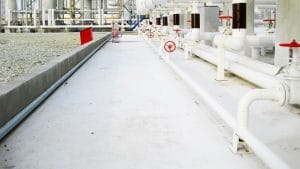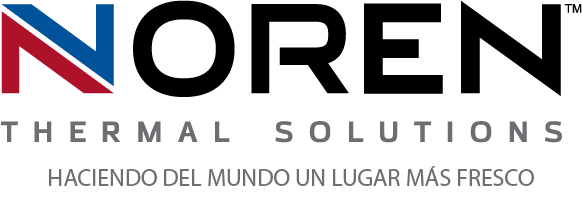 For many industries, electrical thermal management has long been an area where things like high costs and energy usage and frequent maintenance are par for the course. That’s because they rely on solutions that demand such considerations, such as HVAC equipment and air compression units. However, today’s companies more often choose more innovative heat exchangers and other custom thermal solutions that don’t come with such challenges, or make overcoming them significantly easier. With the help of heat exchangers, the things that were once necessary hindrances to electrical cooling are no longer as much of a concern.
For many industries, electrical thermal management has long been an area where things like high costs and energy usage and frequent maintenance are par for the course. That’s because they rely on solutions that demand such considerations, such as HVAC equipment and air compression units. However, today’s companies more often choose more innovative heat exchangers and other custom thermal solutions that don’t come with such challenges, or make overcoming them significantly easier. With the help of heat exchangers, the things that were once necessary hindrances to electrical cooling are no longer as much of a concern.
High usage and costs of energy
As with many other processes, electrical cooling takes energy. How much energy each solution requires, however, varies greatly. For instance, traditional HVAC and air compression technologies require large amounts of energy, especially in industrial applications that often require continuous operation. Yet, heat exchangers help cut those costs in several ways, not the least of which is their methods of transferring heat instead of utilizing chilled or compressed air. As the costs of energy grow higher and its use more restricted, the value in using heat exchangers that require much less of it becomes increasingly more impactful.
Frequent downtime and need for maintenance
The reduction in energy usage and costs associated with heat exchangers is a significant advantage for companies in modern industries. However, when it comes to productivity, heat exchangers are even more beneficial than traditional solutions. Because of their complicated machinery and numerous small, moving parts, things like air conditioners and air compressors can often malfunction or break down, halting operations and forcing unscheduled downtime. The longer it takes to complete maintenance, the more revenue a company loses. By contrast, heat exchangers require significantly less maintenance because they’re designed to transfer heat using simpler, more efficient equipment.
Notable environmental footprints
When companies use less energy on things like electrical cooling, they have a much smaller impact overall on the environment. This has made heat exchangers an important tool in helping companies reduce their environmental footprints. Their green benefits go even further thanks to the eco-friendly fluids and natural thermal processes that they utilize. Processes that involve compressing or chilling air not only require large amounts of energy, but also the use of chemicals that can often prove environmentally unfriendly. However, transferring heat doesn’t rely on the use of such chemicals, and therefore, heat exchangers eliminate the need of such substances being released into the environment.
For more information about how to avoid the things that often hinder electrical cooling, call Noren Thermal Solutions in Taylor, TX, at 866-936-6736.







